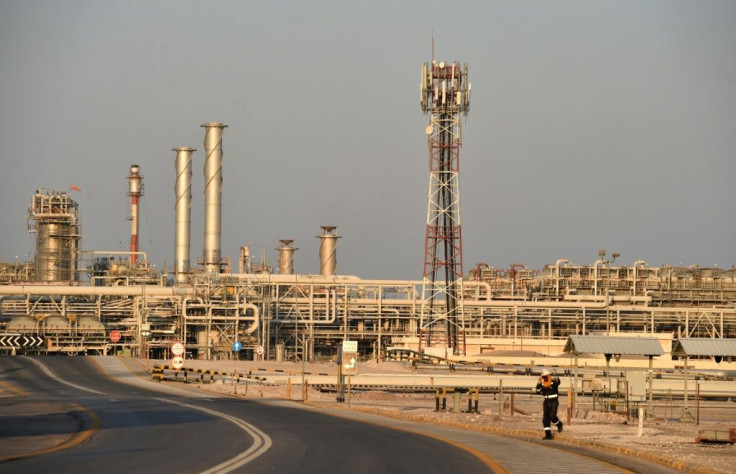Saudi Aramco Surges 10% On First Day Of Trading. Can it Reach $2 Trillion Market Cap?

Saudi Arabia’s oil company Saudi Aramco made a sparkling debut on its first day of trading on the Saudi Tadawul stock exchange on Wednesday, soaring to the daily limit of 10% and increasing its overall market cap to $1.88 trillion.
Saudi Aramco shares closed at 35.2 Saudi riyals ($9.39) per share, up from the initial public offer price of 32 riyals ($8.53) per share.
Aramco now has a greater value than five major oil companies -- Exxon Mobil (XOM), Total (TOT), Royal Dutch Shell (RDS-A), Chevron (CVX) and BP (BP) – combined.
Last week, Aramco had the biggest initial public offering in history – at $25.6 billion, it surpassed the previous record holder, China’s Alibaba Group (BABA), which raised $25 billion in 2014. In that historic IPO, the Saudi government sold off a 1.5% stake in Aramco, primarily to local investors in the Persian Gulf.
The success of Aramco’s IPO came only three months after Iran was blamed for a September drone attack on Saudi Arabia’s main crude oil processing facility that rattled world markets and temporarily halted production.
Crown Prince Mohammed bin Salman has said he wants to use proceeds of the public offering to finance national projects to provide jobs for millions of young Saudis and, ultimately, to diversify the kingdom’s economy away from a reliance on oil.
Sarah al Suhaimi, chairwoman of the Tadawul stock exchange, called the listing, “an extraordinary event in the kingdom of Saudi Arabia and the world at large.”
“We are progressing based on what was decided, which is to [price] Aramco at 32 riyals per share, which was agreed based on full analysis and evaluation,” Aramco CEO Amin Nasser told CNBC. “We are happy [with] the results today. And you have seen the market respond to our results, the company will continue to be the leader globally when it comes to the energy sector and at the same time we are looking at sustained and growing dividends to our investors.:
However, instead of being offered to investors across the globe, retail shares of Aramco were offered only to Saudi and other Gulf state citizens while institutional shares were sold mostly to Saudi and Gulf-based funds. Some foreign investors thought the valuation was too high, considering the geopolitical risks involved and concerns about governance and transparency.
“They have had to launch the IPO on their own stock exchange as the valuation was unlikely to be achieved elsewhere,” said John Colley, associate dean at Warwick Business School in Britain.
Moreover, the crown prince originally envisioned a $2 trillion market cap for Aramco.
However, Zachary Cefaratti, chief executive officer of Dalma Capital Management Ltd. of Dubai, which manages Saudi equity funds, said Aramco could reach the $2 trillion figure by Thursday if shares jump another 10%.
“The amount of demand for Saudi Aramco shares has been overwhelming. Much more than could be justified by anyone stating that it’s simply been propped up,” he said. “A lot of international investors have felt that there should be a discount to Aramco shares due to perceived geopolitical risk. We actually believe geopolitical risk in Aramco is overstated and that the recent Sept. 14 attacks actually demonstrated Aramco’s resilience.”
Aramco has also said it will pay dividends of at least $75 billion next year to encourage Saudi citizens to keep buying shares. In addition, individual Saudi investors who keep their shares for six months from the first day of trading are eligible to receive one share for every 10 shares they hold.
A dampening factor to all this euphoria has to do with the relatively low price of oil, now at about $63 per barrel. Monica Malik, chief economist at Abu Dhabi Commercial Bank, estimated that oil has to be priced at $87 per barrel for Saudi Arabia to balance its budget and escape its deficit.
© Copyright IBTimes 2024. All rights reserved.





















